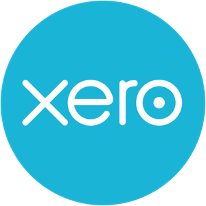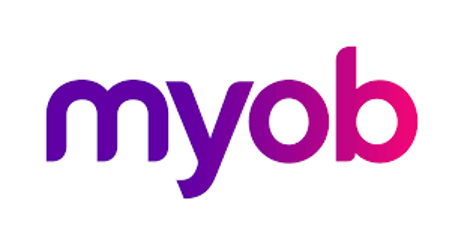Globally, the evolution of accounting software has transcended traditional boundaries, catering not only to large commercial enterprises but also to the diverse needs of small and medium-sized businesses. No longer confined to the realm of spreadsheets and manual data entry, today's accounting software empowers businesses of all sizes with sophisticated features and seamless integration capabilities.
Below will now explore some of the top accounting and bookkeeping software solutions available in Australia. From intuitive user interfaces to robust reporting functionalities, these platforms are designed to streamline financial workflows and enhance decision-making processes.
Let's dive in and discover how the evolution of software has simplified accounting and bookkeeping processes in the Australian business landscape.

Xero is a widely used accounting software founded in 2006 in New Zealand. It is one of the fastest-growing software as a service companies globally.
Small business makes the world go round – it’s the heart of the global economy. Xero wants millions of small businesses to thrive through better tools, information and connections. They work closely with their customers, partners, and other friends to push innovation forward, turning Xero into an online business platform for the world.
Here's an overview of Xero:
Xero offers a range of features to streamline accounting tasks, including invoicing, expense tracking, bank reconciliation, payroll processing, and financial reporting.
- Xero offers a wide range of features to manage business finances efficiently, including invoicing, expense tracking, bank reconciliation, payroll processing, inventory management, and financial reporting.
- Users can create professional invoices, track sales and expenses, manage inventory levels, and generate reports such as profit and loss statements, balance sheets, and cash flow reports.
- Xero also integrates with hundreds of third-party apps and services, allowing users to extend its functionality and streamline business processes.
- Xero simplifies accounting tasks, saving time and reducing errors associated with manual bookkeeping processes.
- It provides real-time access to financial data, enabling businesses to make informed decisions based on up-to-date information.
- Xero's user-friendly interface and intuitive design make it easy for users to navigate and use the software effectively.
- The software is highly customisable, allowing users to tailor it to their specific business needs with add-ons and integrations.
- Xero offers a range of support options to help users get started with the software and troubleshoot any issues they may encounter.
- Users can access online tutorials, help articles, and video guides, as well as email support and 24/7 customer service for urgent inquiries.
- Xero employs robust security measures to protect users' financial data, including encryption, firewalls, and regular security audits.
- Users can control access to their Xero account with multi-factor authentication and user permissions, ensuring data privacy and security.
Click HERE for more information.

QuickBooks is a widely used accounting software developed and marketed by Intuit. It's designed to help small and medium-sized businesses manage their finances more efficiently.
Here's an overview of QuickBooks:
QuickBooks offers a range of features to streamline accounting tasks, including invoicing, expense tracking, bank reconciliation, payroll processing, and financial reporting.
- Users can customise invoices, track sales and expenses, manage inventory, and generate various financial reports such as profit and loss statements, balance sheets, and cash flow statements. It also integrates with various third-party apps and services to extend its functionality, such as payment processing, time tracking, and customer relationship management (CRM) systems.
- QuickBooks comes in several versions tailored to different business needs, including QuickBooks Online, QuickBooks Desktop (Pro, Premier, and Enterprise editions), and QuickBooks Self-Employed.
- QuickBooks Online is a cloud-based version accessible from any internet-connected device, while QuickBooks Desktop is installed on a computer and offers more robust features for larger businesses.
- QuickBooks Self-Employed is designed for freelancers, independent contractors, and sole proprietors, providing tools for tracking income and expenses, calculating taxes, and estimating quarterly tax payments.
- QuickBooks simplifies financial management tasks, saving time and reducing errors associated with manual bookkeeping processes.
- It provides real-time access to financial data, enabling businesses to make informed decisions based on up-to-date information.
- QuickBooks integrates with various banks, financial institutions, and business applications, streamlining data entry and reconciliation processes.
- The software is user-friendly, with an intuitive interface and customizable features that can be tailored to suit different business requirements.
- Intuit offers customer support, training resources, and online tutorials to help users get started with QuickBooks and maximise its features.
- Users can access live support, community forums, and online knowledge bases for troubleshooting issues and getting answers to common questions.
- QuickBooks employs industry-standard security measures to protect users' financial data, including encryption, secure data centres, and regular backups.
- Users can set permissions and access levels to control who can view and modify sensitive financial information within the software.
Click HERE for more information.

MYOB (Mind Your Own Business) is another popular accounting software used by small and medium-sized businesses, primarily in Australia and New Zealand.
Here's an overview of MYOB:
- MYOB offers a comprehensive set of features to manage various aspects of business finances, including invoicing, expense tracking, bank reconciliation, payroll processing, inventory management, and financial reporting.
- Users can create customised invoices, track sales and expenses, manage inventory levels, and generate reports such as profit and loss statements, balance sheets, and cash flow reports.
- MYOB also integrates with a range of third-party apps and services to extend its functionality, including payment processing, time tracking, and CRM systems.
- MYOB simplifies accounting tasks, saving time and reducing manual errors associated with traditional bookkeeping methods.
- It provides real-time access to financial data, enabling businesses to make informed decisions based on up-to-date information.
- MYOB offers customisable features and templates to suit different business requirements, allowing users to tailor the software to their specific needs.
- The software is user-friendly, with an intuitive interface and customisable features that can be tailored to suit different business requirements.
- MYOB provides customer support, training resources, and online tutorials to help users get started with the software and maximise its features.
- Users can access phone support, live chat, community forums, and online knowledge bases for assistance with technical issues and general inquiries..
- MYOB employs industry-standard security measures to protect users' financial data, including encryption, secure data centers, and regular backups.
- Users can set permissions and access levels to control who can view and modify sensitive financial information within the software.
Click HERE for more information.
